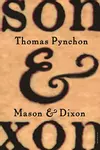
Tyler
It’s not a long list but, certainly the best graphic novel adaptation I’ve encountered. And not due to the preservation of the original text—like Ogion the Silent and Le Guin before him, Fred Fordham knows the truth of, “Only in silence, the word.” These stunning images render an Earthsea suffused with shadow and light, such that the reader turns within to form the edges and chart their course
Not simply a book for readers and writers of fantasy/sci-fi but anyone who feels sincerely for art at all. Le Guin toppled barriers of industry with her groundbreaking fiction, but here she turns our attention to the artistic walls of our own making. Through the language of the night itself, she illuminates our responsibility and privilege to engage with our collective unconscious and embrace truth in writing. For when we refuse to accept anything lesser, this still-evolving literature of unreal creatures, technologies, possibilities presents a truth of our time more "real" than anything else
Through the looking glass, into the place where it all began—from flowing waters there surfaced all systems of sex and gendered power. All loveless death, purpose-driven life, and the precarious paths between. When we fasten to one another in that place of thought, not with chains but charitable understanding…if we make our own path, may we never look back.
Someone tell me Le Guin isn’t the best to ever do it, I dare you. Also fairly wild to read of Hugh’s Labor Day struggles as I too weigh a crossroads involving librarianship
Being another 20 years removed from the last sanctioned visit to Hav, my standard grief at putting down a masterpiece is here accompanied by despair over the seeming loss of the city-state altogether. Hav’s allegories have before our eyes bent further into maze-like opacity, evangelism, and zealous capital pursuit. I’m crying into my sea urchin soup rn, and I plan to cope by combing actual travelogues until I find one as illuminative (eagerly beginning with Jan Morris, herself)
I've never been so quickly hooked. Since the intro bade me consider the preconceptions and even physicality involved with embarking on a read, my consciousness re: the act of reading has exploded. Now I can’t help but adjourn from the commotion of the bus and give everything of myself to the tomes toted in my lap. Or perhaps the substance of the stuff is made in those moments where my gaze wanders?…sometimes both or neither
Anyway, this is mildly philosophical but so playful. How could I call its narratives a gimmick when Calvino is often anticipating and eluding my exact attitudes?
Nearly perfect but for hard and unfocused male gaze (unless you’re among those readers privately seeking this, too). I expect anyone who reads any fiction for any reason would find some resonance here
So astonishingly great that I can't believe I hadn't heard of it. Bless whichever airport was the straw that broke Le Guin's back and compelled her to dream up this relatively short & simple ethnographic wonder of concepts and cultures. It strikes me like an anti-capitalist, post-humanist, post-structuralist Phantom Tollbooth. Not to mention pretty pictures!!
I anticipated that Moore's takes on Lovecraft would examine the seriously messed up fiction, but I'm intrigued by how Moore explores the fucked up writer himself. This discourse is the comic's winning element, and I hope for more from Moore's Providence.There's much to contemplate re: the role of extreme sexual violence—as a reaction to Lovecraft's repression, it's perhaps a little over-corrective? To me, the character response in the final issue is at once a liberating conclusion and a troublesome head-scratcher

















































